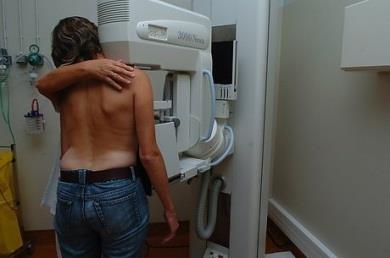Asian women in the UK have a disproportionately high incidence of breast cancer but greater support can help break taboos and spread awareness, writes Anil Jain

Incidence rates for breast cancer have increased in Asian women in the UK, mirroring rates seen in the Indian subcontinent. There, breast cancer manifests itself more aggressively and earlier than in Caucasian women, peaking at the age of 45.
‘It became clear that there are deeply entrenched issues and progress required a multipronged approach’
As such, Asian women here need to be made more aware of breast cancer. But deep rooted health inequalities exist in the breast care of Asian women at various steps of their journey. This is true from poor breast cancer awareness through to low uptake of screening, delayed diagnosis and late presentation, poor uptake of breast reconstruction after mastectomy and low breast cancer survival rates.
In October 2010 I organised a national conference to identify various barriers to improving the breast care of Asian women. While language is an important issue, especially in first generation screening age (50-70 years old), cultural and social issues are equally important.
It became clear that there are deeply entrenched issues and progress required a multipronged approach. It further called for active partnership between health professionals and Asian breast cancer patients, their carers and interested members of the public.
This led to the launch in October 2011 of the Asian Breast Cancer Support Group at the Nightingale Centre and Genesis Prevention Centre at University Hospital of South Manchester Foundation Trust.
Culture of support
The group’s objectives are ambitious and challenging. They include offering support, as Asian breast cancer patients have unique cultural and linguistic needs.
‘The group provides a valuable forum for patient and carer group members to interact and share experiences’
The group provides a valuable forum for patient and carer group members to interact and share experiences with each other. In due course, they can support newly diagnosed patients as well as survivors of breast cancer.
The ambition is also for health professionals and patients or carers to work in partnership on the following objectives:
- Information: to consider what information is available at various steps of a patient’s journey; whether it needs updating; translation into common Asian languages depending on the patients we serve; and help to develop written, audio and video materials.
- Communication: to support health professionals in communicating effectively with this group of patients. For example, is it meeting their needs and how can we improve it?
- Promote breast cancer awareness: help develop an effective programme to raise breast cancer awareness in Asian women.
- Promote research and participation in clinical trials: input to various research projects and represent the interests of Asian patients, while helping to increase participation of patients in research trials.
Over the last four years, the group’s membership base has expanded widely and it has made considerable progress towards its objectives, though there is still a lot to be done.
We have helped bridge the gap between patients, carers and lay people on one hand, and healthcare professionals on the other.
Attendees come from all over England and share their experiences, new initiatives and ideas. The group has established a large inventory of multilingual leaflets and other information for patients and carers. These are distributed more widely with the help of group members and local charities.
Members help in various research projects and their findings are then shared with the group. Patient, carer and lay group members also help to improve the cross-cultural communication skills of healthcare professionals through role playing.
Breaking a taboo
A paper by Karbani et al, published in the Asian Pacific Journal of Cancer Prevention in 2011, concluded that “cultural beliefs and practices accentuate difficulties in understanding breast cancer, breast screening and breast self-examination, and can prevent South Asian women from adopting preventive health practices”.
‘Without any hierarchy, they network and help improve cultural and linguistic understanding’
Breast cancer is a major stigma in the Asian community, preventing some women from seeking early diagnosis, treatment and follow-up care. Our group is helping them to breach this taboo subject, speak openly about their experiences and improve services for other patients.
In group meetings, patients, carers and interested lay people are joined by healthcare professionals and academics. Without any hierarchy, they network and share information, raise awareness, help improve cultural and linguistic understanding and dampen the stigma of breast cancer in Asian communities.
The group also attracts patients to participate in research trials. It uses every possible opportunity to raise breast cancer awareness via local broadcasting channels and social media. Overall, it is gradually helping to address health inequalities in breast care.
Professor Anil Jain is a consultant radiologist and founding chair of the Asian Breast Cancer Support Group at University Hospital of South Manchester Foundation Trust.



























No comments yet